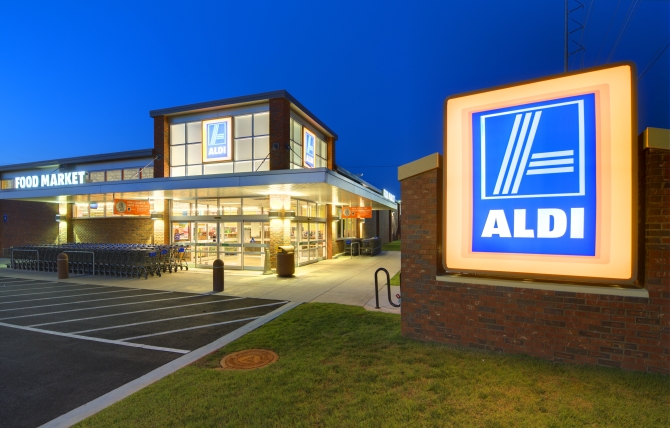While the Big Four may be starting to regain some ground in the battle of the supermarkets, it appears that the discounters remain very much in the picture. This has been evidenced this week by Aldi, which has become the sixth largest supermarket in the UK based on market share after leapfrogging upmarket brand Waitrose.

The German discounter saw sales grow by 16.8 per cent in the 12 weeks to the 29th of March, overshadowing Waitrose’s 2.9 per cent growth significantly according to the latest data by Kantar Worldpanel. Lidl, meanwhile, followed closely behind its main rival, with sales growth of 12.1 per cent.
In turn, these results helped the growth of market share for the discount brands, which now represent 9 per cent of the grocery market overall – a huge leap from the 5.4 per cent representation they garnered in 2012. Aldi remains the key party in this aspect, with a market share of 5.3 per cent again marginally higher than Waitrose’s 5.1 per cent.
Yet while this may seem to be bad news for Waitrose at first glance, the John Lewis Partnership-owned brand continues to post growth both in sales and in market share in direct contrast to members of the Big Four.
Although the ebb of consumers away from Tesco, Sainsbury’s, Asda and Morrisons has admittedly slowed in recent weeks, only the two discounters and Waitrose are managing to consistently post growth ahead of the general market averages.
Added Value retail analyst Matt Woodhams agrees, saying; “The management at Waitrose will probably be less worried by this news than the big four of Tesco, Sainsbury’s, Asda and Morrisons, as well as Co-op, all of whom have more to lose to Aldi than Waitrose does, and all of whom are likely to find it harder to consistently deliver growth at the rate of Waitrose.
“The ‘all things to all people’ offer of the major supermarkets is as much at risk from the more polarised proposition of Waitrose as it is from Aldi, both of whom are growing by addressing the specific needs of the mainstream better than the mainstream itself.”
Unfortunately for its competitors, it seems that this good fortune is set to continue for Aldi as executives have this week revealed plans to target the lucrative London grocery market in earnest this year. The chain will add nine new stores to its portfolio in the capital by the end of 2015, effectively quadrupling its current number of stores.
In addition, growth will remain the key word in the rest of the country, with new industry figures indicating that Aldi will open around five times the amount of new space when compared to Tesco this year. Furthermore, this growth will be more than that of Tesco, Sainsbury’s and Morrisons combined as Aldi strives to reach its target of 1,000 UK stores by 2022.
It seems, then, that new store openings may be the secret of Aldi’s success. Considering that the Big Four remain committed to closing many of their superstores, it is entirely possible that Aldi will soon be snapping at their heels.
Do you think the Big Four should reconsider store closure strategies?